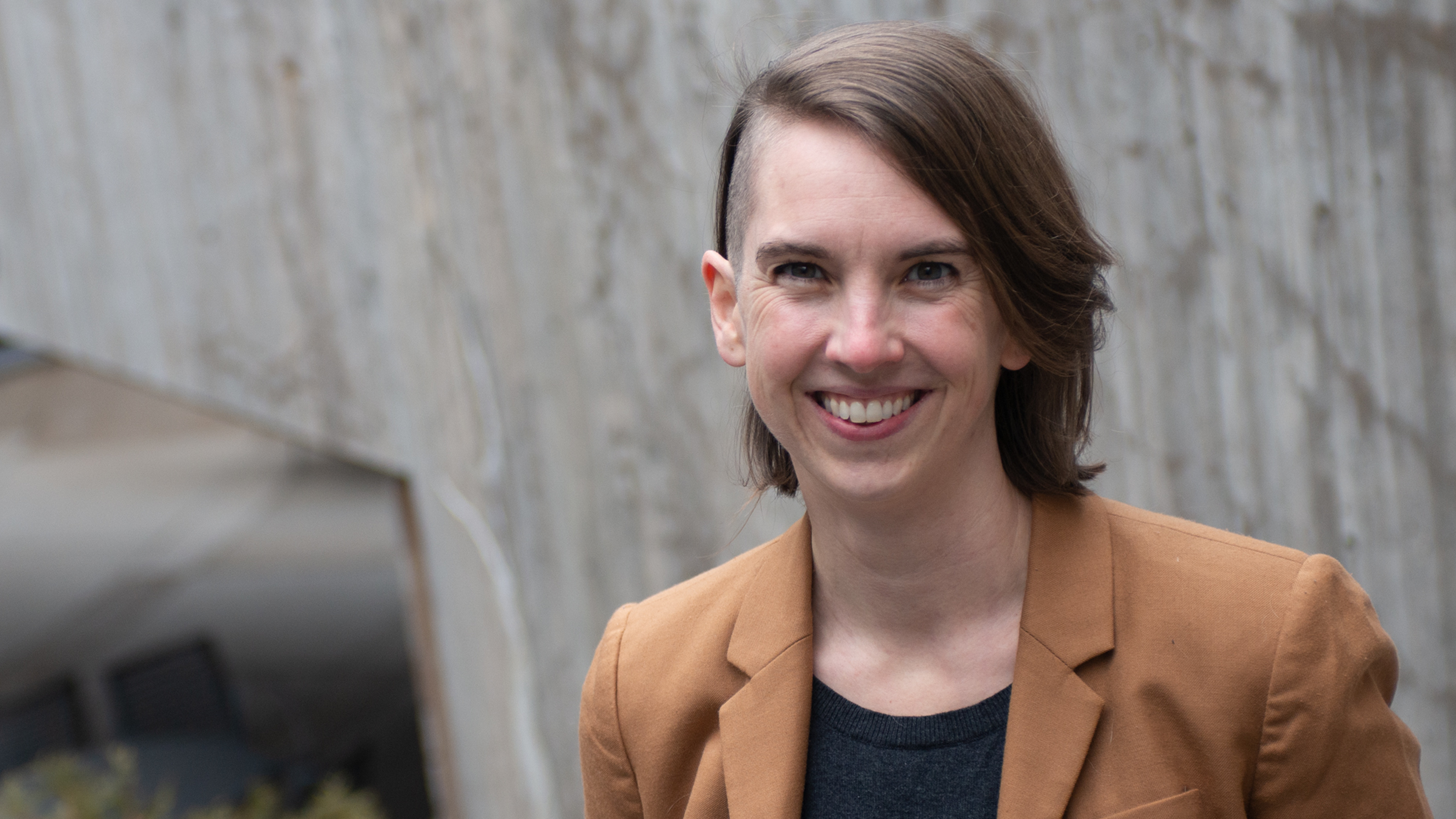
Anya Prince is a professor and Joseph F. Rosenfield Fellow in Law in the College of Law and an active interdisciplinary scholar.
Tell us about your hometown; how did it shape you?
I grew up in a quiet, tree-lined suburb of Los Angeles. You've probably seen its streets before, as the film industry often comes to town. Scenes from Teen Wolf, Bruce Almighty, Back to the Future, Old School, and Parenthood were all filmed on the street I grew up on or one close by. Playing football in the street with neighborhood friends, chatting with television commercial crews, and ducking and covering during earthquakes was all regular fare for this California kid. The town was also incredibly diverse. I cherish the ways that my friends from differing backgrounds shaped my perspectives and broadened my horizons as a young child and adolescent. So many memories revolve around food: the smell of delicious spices wafting through my friend Wendy's house from the cooking of her grandmother, an immigrant from China; learning to use chopsticks for the first time at a dim sum restaurant for my friend's tenth birthday; eating incredibly spicy naan and being surprised at a bread with heat to it; walking through the Korean market owned by my friend's parents in downtown LA; and going to our local Mexican restaurant so often as a family that we became friends with the owner. Yet these introductions to various cuisines came with lessons about the importance of diversity and the rich stories and values shared amongst those of different socioeconomic, religious, and ethnic backgrounds. They shape how I approach meeting new people and the work I do regarding anti-discrimination and privacy rights.
Tell us about your hobbies/outside interests.
Currently, my husband and I spend all our outside time caring for our increasing mobile and energetic infant. In the before-times I enjoyed rock climbing, hiking, and board games.
What is your favorite hang out place?
My favorite hiking spot in Iowa is Chinkapin Bluffs. It is a lovely, well-maintained spot with a variety of landscapes to walk through, including a corn field and a paw-paw grove! After the hike, we head into Columbus Junction, an amazing slice of diversity in rural Iowa with an Asian grocery store and panaderia. The tacos we get after our hike remind me of my childhood.
Can you share a recent book/movie/performance that you found compelling and why?
I thoroughly enjoyed the N O W I S W H E N W E A R E (the stars) exhibit by Andrew Schneider last year at Hancher. The immersive light show was captivating and unlike any other art installation I had been to previously.
What attracted you to the University of Iowa?
I was drawn to the University of Iowa for the opportunity to work in an interdisciplinary environment. In addition to being the home of one of the top law schools in the country, when I began at Iowa the university had several ‘clusters’ bringing together professors from across campus with cross cutting research interests. I was hired under the Genetics Cluster and have been so appreciative of the collaborations with other genetics researchers across the university that the cluster has provided.
What shaped your interest in your discipline?
I first became interested in the ethical, legal, and social implications of genetic testing when I took a required ethics course in my Master of Public Policy program. The course brought together my interests in anti-discrimination and health policy within the context of fast-advancing scientific technologies. I love the interdisciplinary nature of the field and the ever-evolving legal questions that arise as science advances.
What is the best advice you received as a student and do you still follow that advice today?
“Your work can always fill more time than you have. Make sure to carve out time for yourself.” To this day I still try to maintain a good work/life balance. I find that I am a more efficient and happier researcher when I take time for my family and my hobbies during evenings and weekends.
What changes are on the horizon for your work or your discipline?
One of the things that I love about researching the ethical and legal implications of genetics is that the science is always changing. Sometimes it is hard to predict how the science will change, but I will always know that changes will come. In the short term, I think the biggest changes on the horizon are the implications of larger and larger data sets available to researchers and the privacy implications of that data collection.
What piece of advice would you give to today's students?
Try to find a career path where you work on something that you find yourself waking up pondering. It will always keep you engaged in your work.